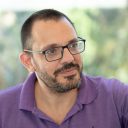With over 42,000 people killed in Gaza and a recent UN Commission finding evidence of Israel committing crimes against humanity in Palestine, it can sometimes feel hollow and pointless to attend a conference on Dialogue, Democracy, and Diversity.
Talking about these issues feels incredibly insufficient at this moment and it’s hard not to feel helpless. But the question is, in the face of divisive rhetoric, people dying on a daily basis and expanding conflicts—not just in Gaza, Lebanon, and the West Bank, but also in places like Sudan and Myanmar—where do we even begin? How do we meaningfully engage with one another in the aid and philanthropy sectors when it has become impossible to pretend everyone is okay to continue business as usual in the face of earth-shattering global crises? The answer was waiting for us at this conference—it begins and ends with community.
Time and again, experience has shown that communities are experts of their own contexts and are best placed to develop, implement, and sustain solutions. Change that is led by communities will always be more contextually appropriate, impactful, and sustainable. And over the course of two sessions at the KoneKtor conference, the School for Peace (SFP) showed everyone why. They embodied a human and empathy-first approach to open up difficult conversations with people who come from varied perspectives. Over the course of these sessions and through their methodology they built something unexpected: connection.
The SFP was established in 1979 as the first educational institution in Israel promoting broad-scale change towards peace and more humane, egalitarian, and just relations between Palestinians and Jews. It is located in the village of Neve Shalom/Wahat al-Salam (“Oasis for Peace” in Hebrew and Arabic), a unique and inspiring cooperative village jointly founded by Israeli Jews and Palestinians to explore lived solutions to peace in the region and continues to be home to Palestinian-Israeli and Jewish-Israeli families who have chosen to live together peacefully.
The SFP trains peace activists and supports the community’s education. Leadership alternates every few years between a Palestinian director and a Jewish director, and staff comprise an equal number of Jewish and Palestinian facilitators. The approach begins from a place of understanding where facts and knowledge do not suffice in creating socio-political conscience and re-examining reality. We directly address events and the relations, while taking care to create a safe space for examining feelings and thoughts in the group, as well as challenging socio-political structures and offering an alternative to participants.
Reflections from Konektor by Roi and Noor (School for Peace)
Specifically, we focus on the dynamics between the groups, addressing the challenges and complexities inherent in their relationships. These intergroup relations profoundly influence the participants, and we carefully examine how they shape perceptions and interactions. For example, in one session at the Konektor conference, we encouraged participants to reflect on the language used to describe the relationship between Jews and Palestinians in Israel/Palestine. This method prompted rich discussions about how we can more effectively talk about these issues, with participants offering personal insights into their perspectives on the conflict.
As the session progressed, we delved into how participants’ personal histories—particularly those shaped by living in conflict zones—influence their perceptions of the world and other conflicts. This exploration allowed for profound reflections, revealing how their lived experiences shape their understanding and connection to inter-group relations.
In recent years, we’ve come to realise that the SFP’s approach resonates well beyond the Israeli-Palestinian context. Our method is highly relevant in situations involving identity-based tensions, including ethnic conflicts, war-torn regions, and issues related to immigration. At the Konektor Conference, for example, participants from post-conflict societies were deeply moved by the experience, finding shared understanding and solidarity in their trauma. As facilitators, we also felt recognised and connected through the mutual understanding of those who have endured similar experiences.
Philanthropy must focus on justice through community change
It may feel incongruous to hear, talk, or think about peace in the midst of so many global conflicts. Peace may feel distant and impossible and yes, these peace dialogues may not lead to structural change right away. But we all have to start somewhere. And that place is with ourselves—our own critical thinking, mindsets, and our communities. When the world’s problems seem impossible to solve, the sector must remember that communities are best placed to address their own challenges. And it is imperative that aid and philanthropy do everything in its power to be reparative and regenerative, channelling resources to support community-led solutions—like School for Peace. They are doing the hard work amidst the most challenging circumstances, by finding and building empathy and connection, centring justice, and being a driving force for change.
Noor Abo Ras is a psychologist and group facilitator, serving as a project coordinator at the School for Peace.
Dr. Roi Silberberg is an expert in intergroup dialogue, and the director at the School for Peace at Neve Shalom/Wahat al-Salam.
Seema Kapoor is a Senior Program Manager at GlobalGiving managing and advising on funds and grantmaking with a specific focus on decolonisation and equity in philanthropy.





Comments (0)